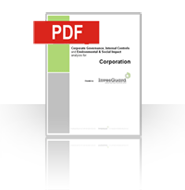October 27th, 2009
Bernanke +Feinberg = Board Compensation Committee
Last week saw a flurry of activity from the Obama administration’s specially appointed paymaster, Kenneth Feinberg as well as pay review measures from Mr.Bernanke of the Federal Reserve. The pay directives from both these sources attempt to curb excessive risk taking by limiting compensation that is tied to risk taking. The federal reserve directive is going to affect all the companies that it holds jurisdiction over while the pay Czar controls compensation for the highest earning executives at the 7 companies getting “exceptional financial aid”.
Plenty has been said of the sheer “socialist” nature of such pay oversight. But opponents of such external pay regulation need to review the current level of self regulation which is zero… zilch…nada.
Executive compensation details are designed by the Board of Directors’ compensation committee. One would expect that besides appointing an external consultant to aid in the development of a compensation structure , there would be a greater input from the Board members themselves to ensure that compensation does not encourage excessive risk taking. Why has it come to the point where external regulatory bodies have to ‘hand hold’ compensation officers and Board members to put them on the right track? Wasn’t that included in the responsibilities of the Board Compensation Committee?
But the most pressing matter that comes to mind is whether this is going in the right direction which is away from a repeat financial apocalypse?
According to the Federal Reserve “Flaws in incentive compensation practices were one of many factors contributing to the financial crisis”. Although this factor has been addressed, how soon should we expect other critical contributing factors to be dealt with?
On the matter of self pay regulation, Credit Suisse became the first bank to announce sweeping changes in its executive compensation structure. By increasing base salary and changing the components of deferred compensation, bank officials have attempted to bring about a positive change in executive compensation. Deferred cash compensation will vest over three years and will be adjusted annually based on Credit Suisse's return on equity and business performance. The deferred stock compensation will vest over four years and may increase depending on Credit Suisse's share price and its return on equity over those years. These changes will not be applicable to employees at the vice-president positions and lower. Another meaningful change was the introduction of minimum share ownership requirements for executives.
Tags: Pay regulation





